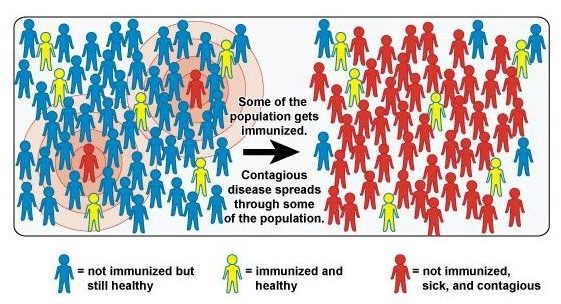
The last week of April each year is marked by WHO and partners as World Immunization Week. It aims to promote the use of vaccines to protect people of all ages against disease. Immunization saves millions of lives and is widely recognized as one of the world’s most successful and cost-effective health interventions.
The theme of this year’s campaign is Protected Together: Vaccines Work!
The main goal of the campaign is to raise awareness about the critical importance of full immunization throughout life.
| The theme of this year’s campaign is Protected Together: Vaccines Work!
The main goal of the campaign is to raise awareness about the critical importance of full immunization throughout life. Key facts |
 |
|
 |
|
 |
- Around 60% of these children live in 10 countries: Afghanistan, Angola, the Democratic Republic of the Congo, Ethiopia, India, Indonesia, Iraq, Nigeria, Pakistan and South Africa.
Some essential Vaccines include;
- Haemophilus influenzae type b (Hib) causes meningitis and pneumonia.
- Hepatitis B is a viral infection that attacks the liver. Hepatitis B vaccine for infants had been introduced nationwide in 187 countries by the end of 2017.
- Human papillomavirus (HPV) is the most common viral infection of the reproductive tract, and can cause cervical cancer, other types of cancer, and genital warts in both men and women.
- Measles is a highly contagious disease caused by a virus, which usually results in a high fever and rash, and can lead to blindness, encephalitis or death.
- Meningitis A is an infection that can cause severe brain damage and is often deadly.
- Mumps is a highly contagious virus that causes painful swelling at the side of the face under the ears (the parotid glands), fever, headache and muscle aches.
- Pneumococcal diseases include pneumonia, meningitis and febrile bacteraemia, as well as otitis media, sinusitis and bronchitis.
- Polio is a highly infectious viral disease that can cause irreversible paralysis.
- Rotaviruses are the most common cause of severe diarrhoeal disease in young children throughout the world.
- Rubella is a viral disease which is usually mild in children, but infection during early pregnancy may cause fetal death or congenital rubella syndrome, which can lead to defects of the brain, heart, eyes, and ears.










